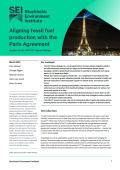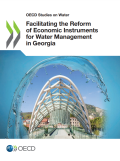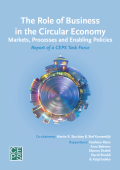Considered to be the largest contributor to the growth in the world’s urban population in the coming years, India and its urbanisation process have reached a critical juncture. As one of the fastest growing countries, urbanisation is undoubtedly an opportunity and a challenge for India with huge implications for the rest of the world.
Spurred by innovation, increased competition, and policy support in a growing number of countries, renewable energy technologies have achieved massive technological advances and sharp cost reductions. Renewables have come to the forefront of the global energy transition, with nearly every country adopting a renewable energy target. Yet progress has been uneven in different countries and sectors. Technology and financial risks still hamper the expansion of renewables into new markets. As the power sector develops further, the increased adoption of variable renewables like solar and wind requires more flexible systems. Compared to power generation, the regulatory framework for end-use sectors lags behind.



